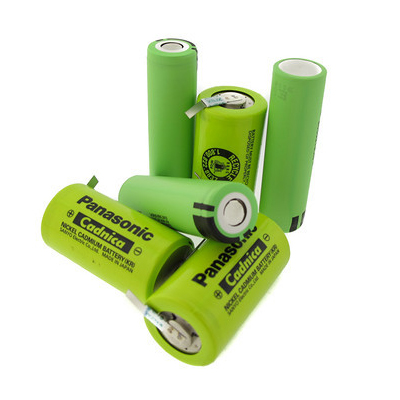There are several factors to consider when selecting the type of battery cell to use in your battery pack design. Looking at the battery requirements and the dimensional space available are important. Another factor that comes up is pricing. The top tier manufacturer brands can be expensive, but there are also comparable solutions in Asia that will reduce the cost.
Why Custom Battery Pack Solutions Matter
When off-the-shelf batteries can’t deliver the performance, reliability, or form factor your product requires, custom battery pack solutions are the answer. Whether you're designing a handheld medical device, industrial sensor, or portable consumer product, custom battery packs give you the flexibility to optimize power, weight, size, and runtime for your specific needs.
Working with a trusted battery manufacturer ensures that your pack is engineered with the right balance of safety, longevity, and cost-efficiency – and tailored precisely to your device’s electrical and mechanical requirements.
Occasionally customers have intentions to work with specific brand cells and models for their battery design. At Epec we have an extensive reputation and are partnered with some of the industry best cell manufacturers. We are also assembly approved for the use of top tier brands such as Panasonic and A123.
Another important factor when choosing you battery pack cell is the type of chemistry. There are a number of different chemistries to consider for your battery pack design and all have different specifications and requirements. Our engineering team will work with you to determine the best battery chemistry selection for your application.

Type of Battery Cell Used in Pack Assemblies
Matching Battery Cell Chemistries to Applications
Each battery chemistry has its strengths. Lithium-ion (Li-ion) is ideal for high energy density needs, while Lithium Iron Phosphate (LiFePO4) offers safety and longer cycle life. Nickel Metal Hydride (NiMH) can be a great alternative for lower cost or less sensitive applications.
Here’s a quick comparison of battery chemistries:
| Chemistry | Best For | Energy Density | Cost | Cycle Life | Notes |
|---|---|---|---|---|---|
| Li-ion | Portable electronics, EVs | High | Moderate | 300-500 | High performance, some thermal risk |
| LiFePO4 | Industrial, medical, and power tools | Medium | Moderate | 1000+ | Very safe, long life |
| NiMH | Consumer, low-voltage devices | Medium | Low | 500-1000 | Cost-effective, no memory effect |
| NiCd | Legacy systems | Low | Low | 1000+ | Memory effect, toxic materials |
Our engineering team helps evaluate which chemistry is best based on your application profile and budget.
More factors that may influence your decision when choosing the proper battery cell include:
- Size
- Weight
- Form Factor
- Power Usage Vs. Energy Usage
- Operating Temperature Ranges
- Cycle Life
- Standby Operation Vs. Cyclic Operation
- Cost Vs. Performance
Once the application in which the battery pack will be used is fully understood, we can select the applicable chemistry that best suits your needs. Keep in mind that all these factors are all discussed up front when working with Epec's engineering team to help develop a reliable custom battery pack for your end product.
Partnering with a Full-Service Battery Pack Manufacturer
Choosing the right battery cell is just the beginning. At Epec, we offer end-to-end support – from design and prototyping to testing, certifications, and volume production. Our in-house engineering, supply chain management, and global manufacturing capabilities ensure that your custom battery pack meets performance, safety, and cost expectations – all while accelerating time to market.
With UL, UN38.3, RoHS, and REACH compliance experience, we’re ready to help you navigate any technical or regulatory challenge.
Summary
Choosing the right battery cell isn't just a technical decision, it's a strategic one. The cell you select becomes the foundation of your product’s performance, safety, and reliability. But with so many variables at play, from chemistry and form factors to sourcing and compliance, making the right choice can be complex. That’s why having a knowledgeable partner matters. At Epec, we don’t just help you select a battery cell; we help you engineer the best possible solution for your product’s success in the real world. Whether you're navigating tight timelines, high-performance requirements, or cost constraints, we bring the experience, flexibility, and global resources to move your idea from concept to market-ready with confidence.
Visit our website for more information on types of battery cell comparisons.
Key Takeaways
- Custom battery packs deliver optimized performance. Off-the-shelf solutions often fall short for unique applications. Custom designs allow precise control over power, size, weight, and runtime.
- Chemistry selection is critical to application success. Choosing between lithium-ion, LiFePO4, NiMH, or NiCd depends on energy density needs, safety, cost, and cycle life.
- Key cell factors go beyond chemistry. Important considerations like size, weight, operating temperature, and energy vs. power demands all influence proper cell selection.
- Trusted manufacturing partnerships matter. Epec is assembly-approved by top-tier brands like Panasonic and A123 and offers qualified cost-effective options from Asia.
- Full-service support ensures project success. Epec provides complete support from design through certification and production, helping you meet performance and compliance goals efficiently.















